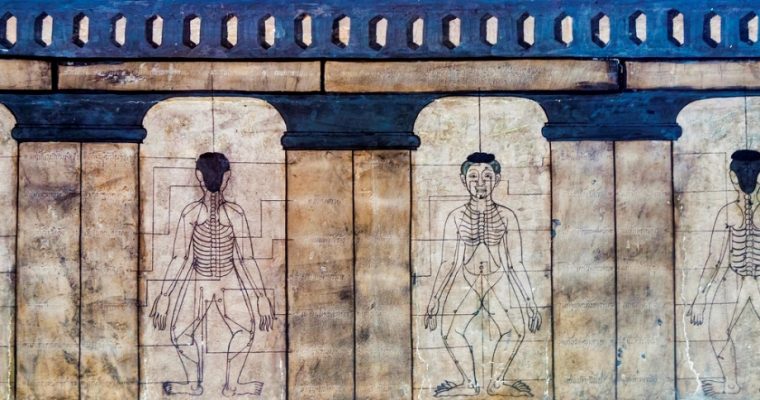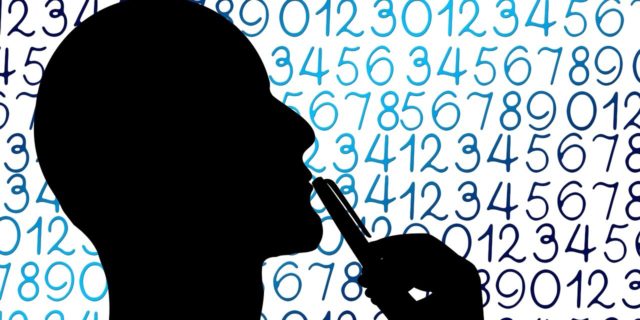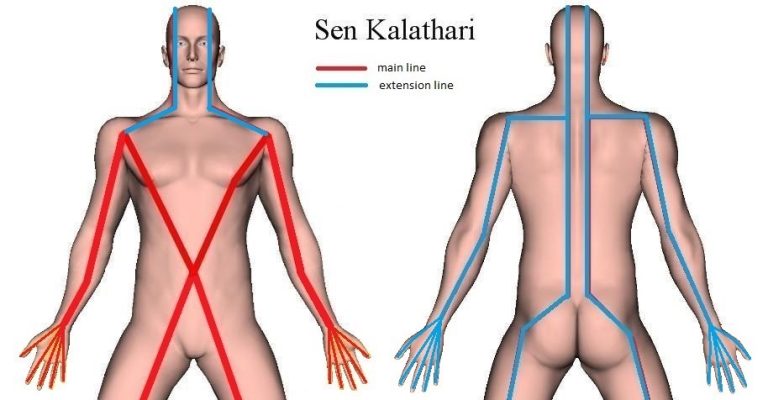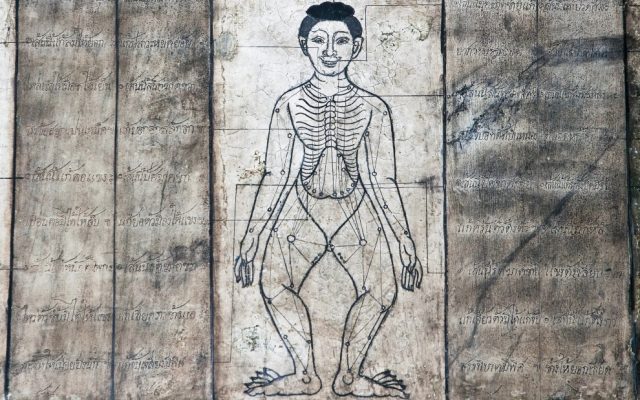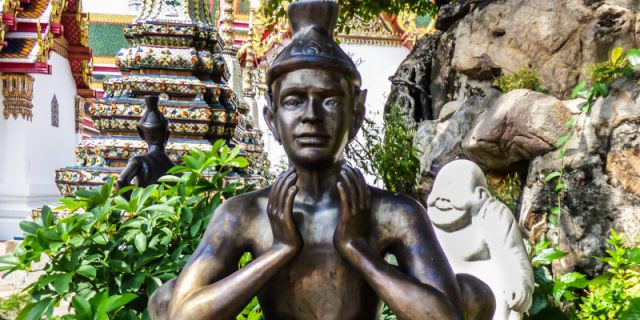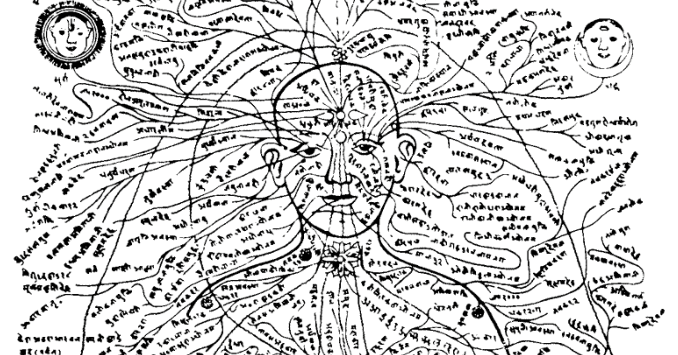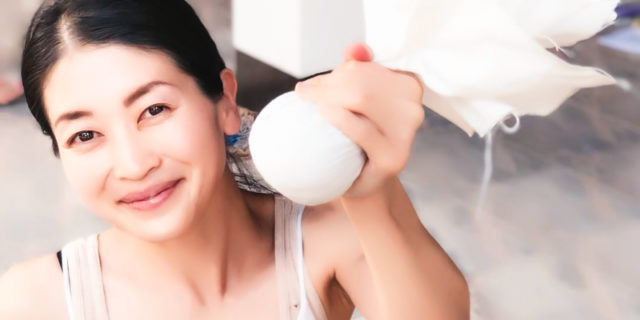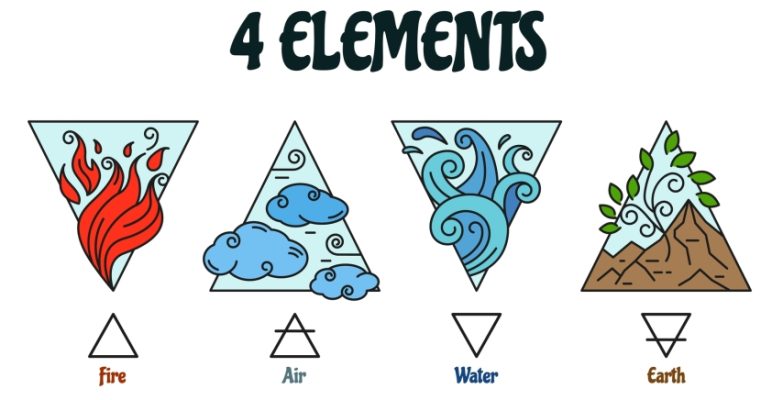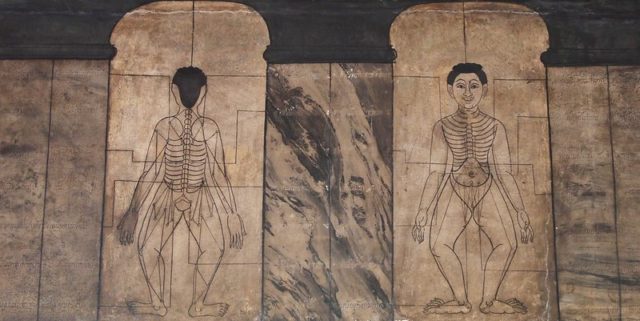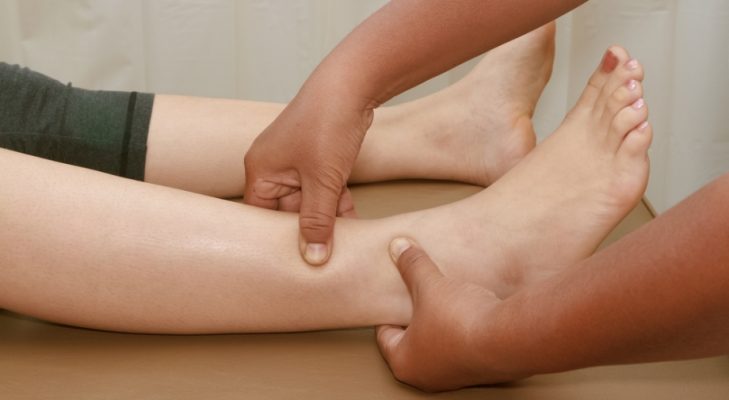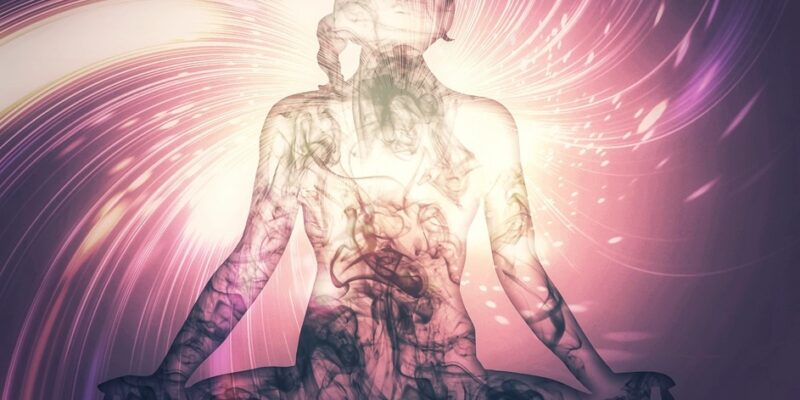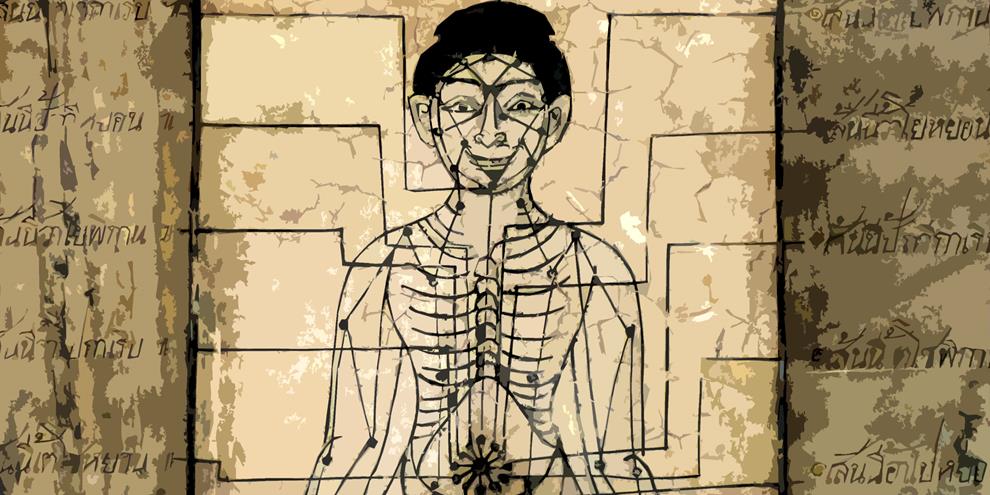
The foundation of Thai Traditional Massage is based on “working the 10 Sen Energy Lines,” that is, applying theoretical and practical knowledge of the so-called Thai Sib Sen (Sen Sib or Sen Sip).
These invisible canals (or pathways) run through our bodies and distribute Vital Life Energy, called Prana, Wind, Lom Pran, Chi (Qi), or Universal Energy. By purifying, unblocking or opening these channels or meridians and by “balancing” the flow of energy through them, we maintain or restore the proper functioning of our body and mind, thereby preventing, alleviating or curing ailments, discomforts and pains.
With Thai Massage we learn their trajectories and locations, and we learn how to manipulate and unblock them — with pressure, acupressure, rocking, with stretches, and with Yoga poses, to name some of the most commonly used techniques.

Traditional Thai Massage recognizes ten main Energy Lines — historically based on knowledge of the Yoga Nadis — although these ten lines also branch into many extensions and sub-lines, said to be a total of 72,000 pathways. In this post, we give you an overview of the trajectories of the ten principal Thai Sen Lines and their respective therapeutic indications, roles, and purpose in our bodies.
Mind that, depending on the Thai Massage lineage, there are some disparities about the routes these Sen Lines take in our bodies. We have primarily followed the outcome of research done by the two well-known Thai Massage instructors Asokananda (Harald Brust) and Kam Thye Chow.
Rest to say that in Thailand the Sib Sen Lines may also carry different names depending on the Thai Massage school, teacher, or lineage.
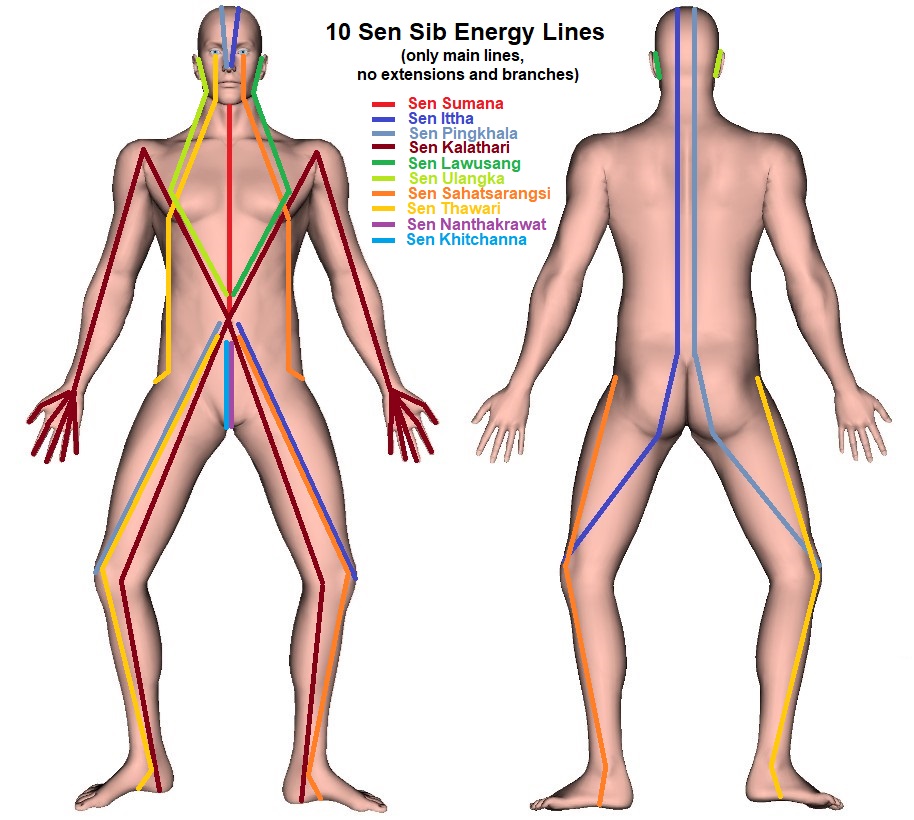
Below you find a quick overview of the ten main Sip Sen Energy Lines. Follow the individual links for more details about the specific Sen Energy Line described, its therapeutic function, and location or trajectory (pathway) including the Sen Line extensions and branches in the body.
1. Sen Sumana
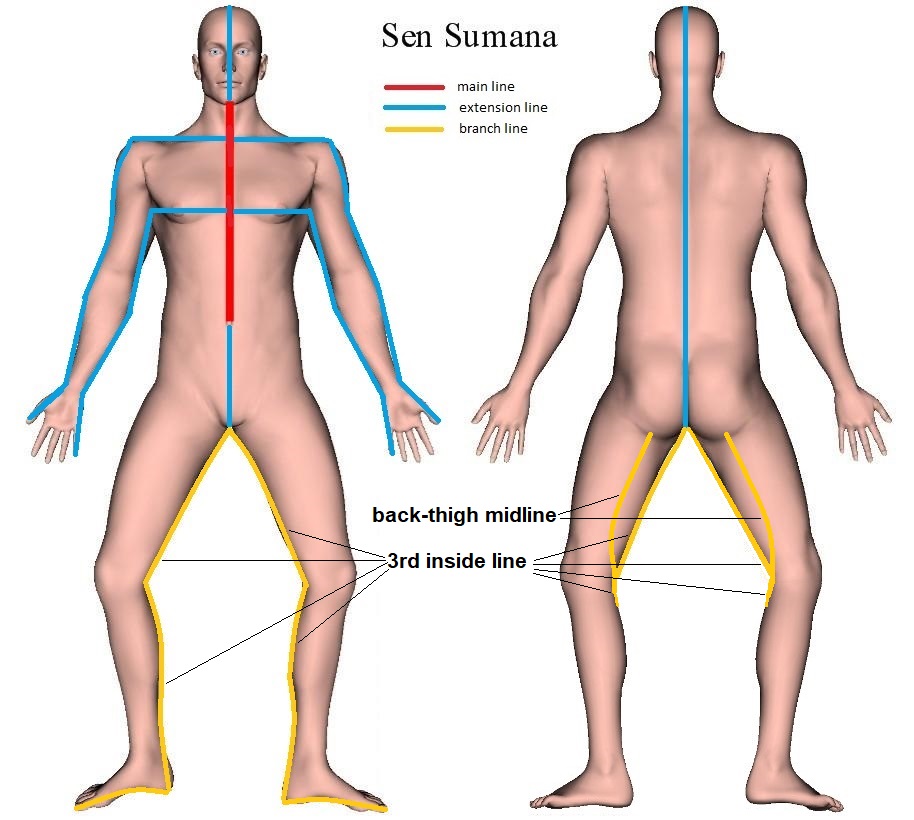 Sen Sumana runs primarily along the spinal column, and is considered the most important of the ten Sen Lines.
Sen Sumana runs primarily along the spinal column, and is considered the most important of the ten Sen Lines.
The channel is associated with the Wind Element and respiratory function, but also with abdominal and digestive issues.
2. Sen Ittha
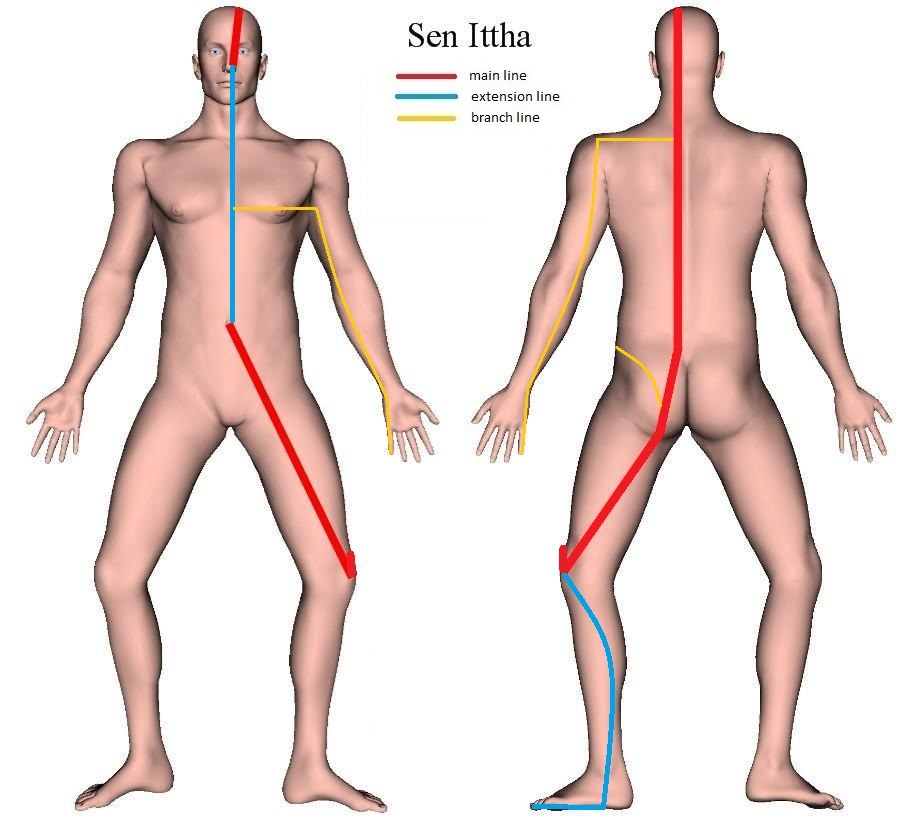 Sen Ittha is associated with the Earth Element and runs on the left side of the body.
Sen Ittha is associated with the Earth Element and runs on the left side of the body.
Typically, the Ittha Energy Line is related to curing or alleviating headaches, colds, sinusitis, back and neck pains, and sciatic nerve pains. In addition, Sen Ittha plays an important role in balancing Prana Life Force.
3. Sen Pingkhala
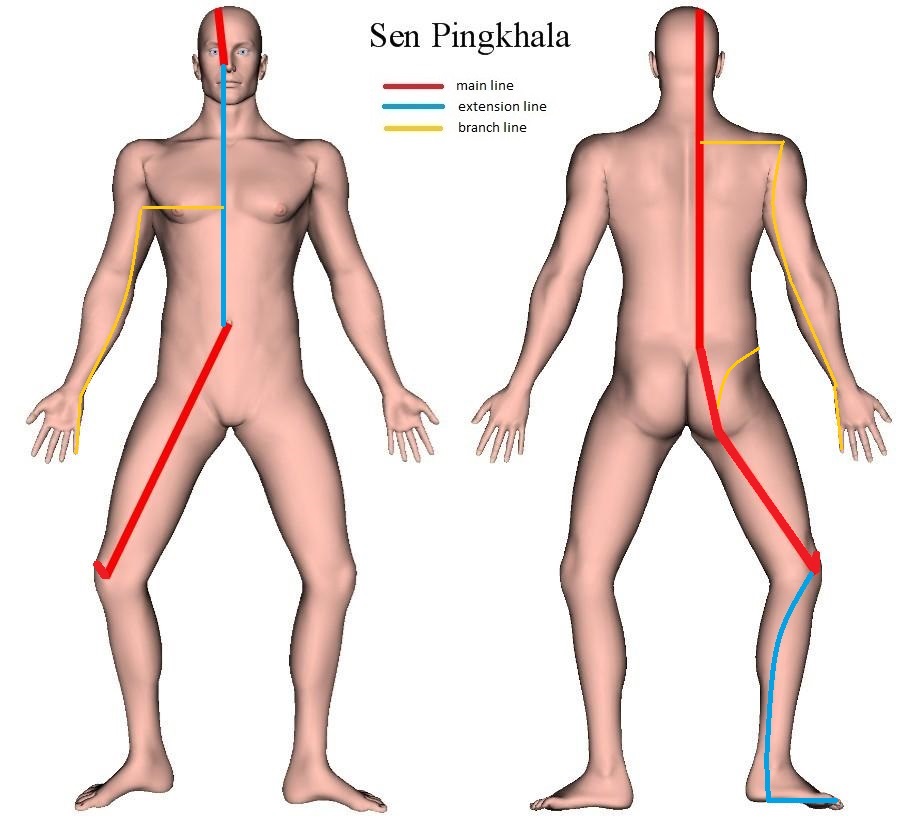 Sen Pingkhala is the counterpart of Sen Ittha, and associated with the Fire Element.
Sen Pingkhala is the counterpart of Sen Ittha, and associated with the Fire Element.
This Energy Line runs at the right side of the body and is related to healing or alleviating headaches, colds, sinusitis, back and neck pains, and sciatic nerve pains. Like Sen Ittha, Pingkhala plays an important role in balancing Prana Life Force.
4. Sen Kalathari
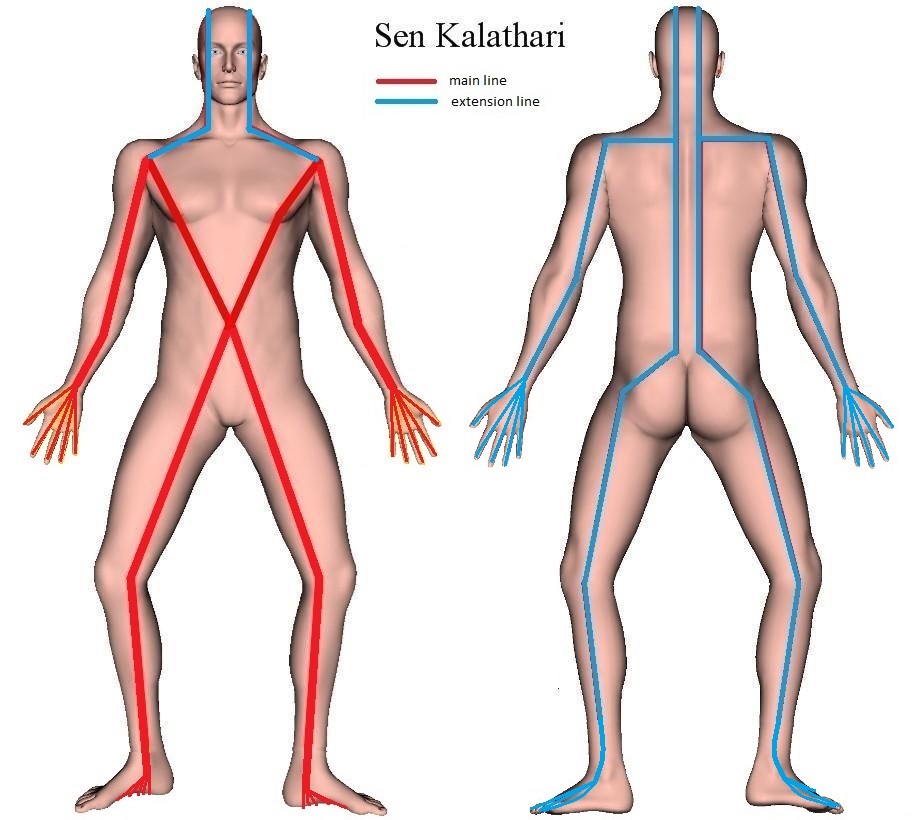 Sen Kalathari, also called the emotional and psychic line, is the Thai Energy Channel strongly associated with “movement of the limbs,” that is, with movement and mobility of the arms, hands, legs, and feet.
Sen Kalathari, also called the emotional and psychic line, is the Thai Energy Channel strongly associated with “movement of the limbs,” that is, with movement and mobility of the arms, hands, legs, and feet.
It’s the only Sen Channel that doesn’t end at an orifice (opening) of the body, but at all the extremities of the limbs (fingers and toes). Sen Kalathari is associated with both the Fire and Wind Elements.
5. Sen Lawusang
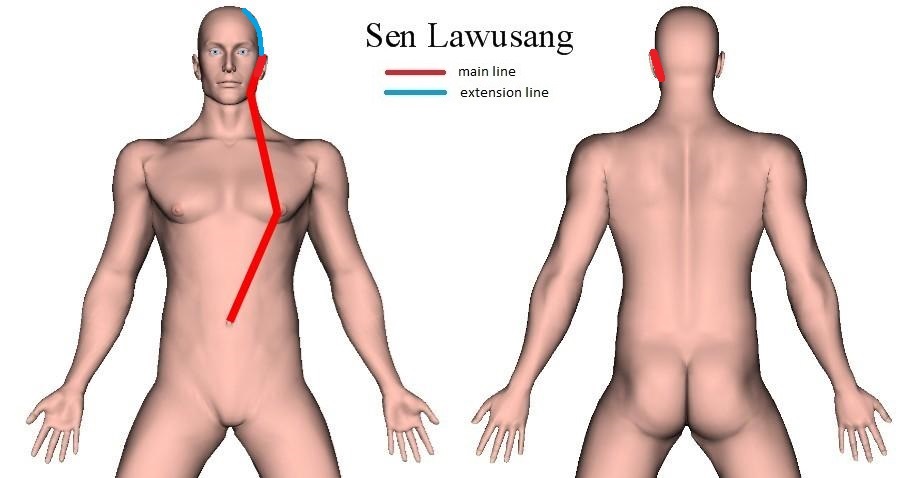 Sen Lawusang is related to the function of the ears, and associated with the Wind Element.
Sen Lawusang is related to the function of the ears, and associated with the Wind Element.
This Sen Energy Line runs on the left side of the body and is the counterpart of Sen Ulangka.
6. Sen Ulangka
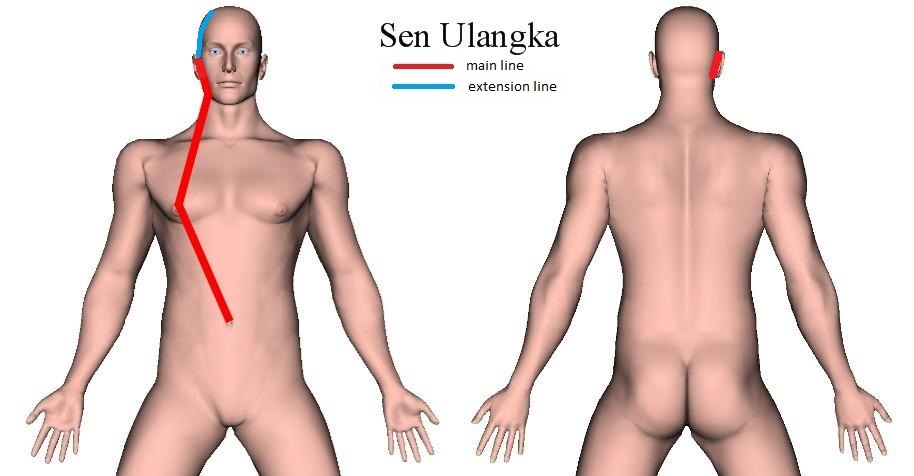 Sen Ulangka is the counterpart of Sen Lawusang and runs on the right side of the body.
Sen Ulangka is the counterpart of Sen Lawusang and runs on the right side of the body.
Just like Sen Lawusang it’s related to healthy functioning of the ears, and associated with the Wind Element.
7. Sen Sahatsarangsi
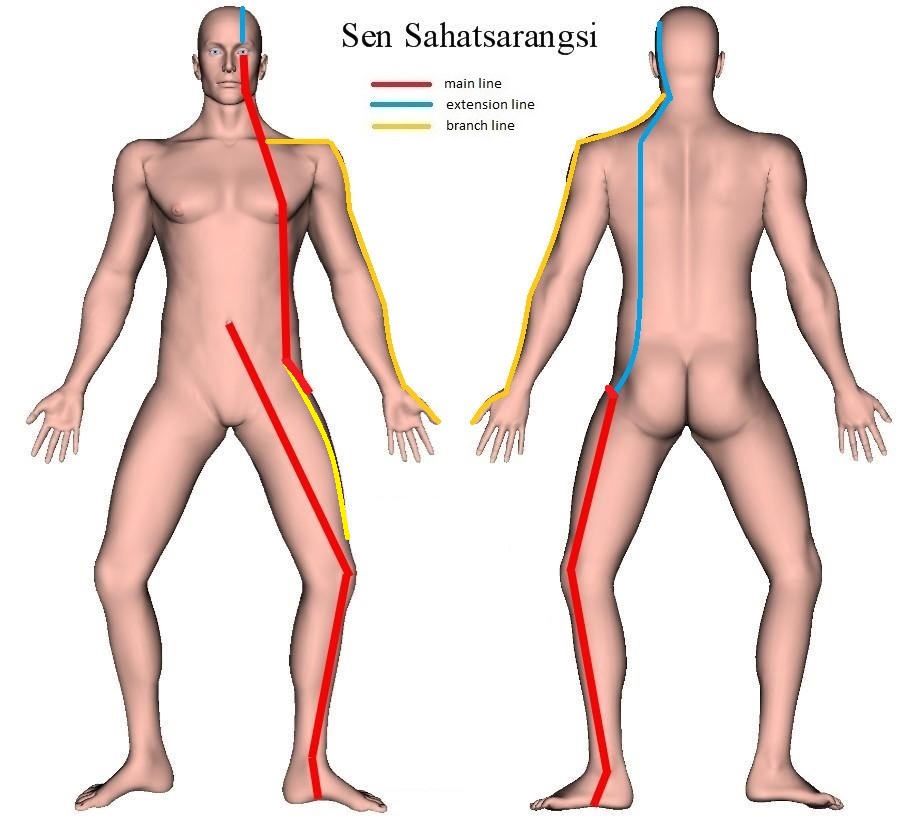 Sen Sahatsarangsi runs at the left side of the body and is associated with the Water Element, and the counterpart of Sen Thawari.
Sen Sahatsarangsi runs at the left side of the body and is associated with the Water Element, and the counterpart of Sen Thawari.
Sen Sahatsarangsi is related to the function of the eyes, the lower abdominal region, and the chest.
8. Sen Thawari
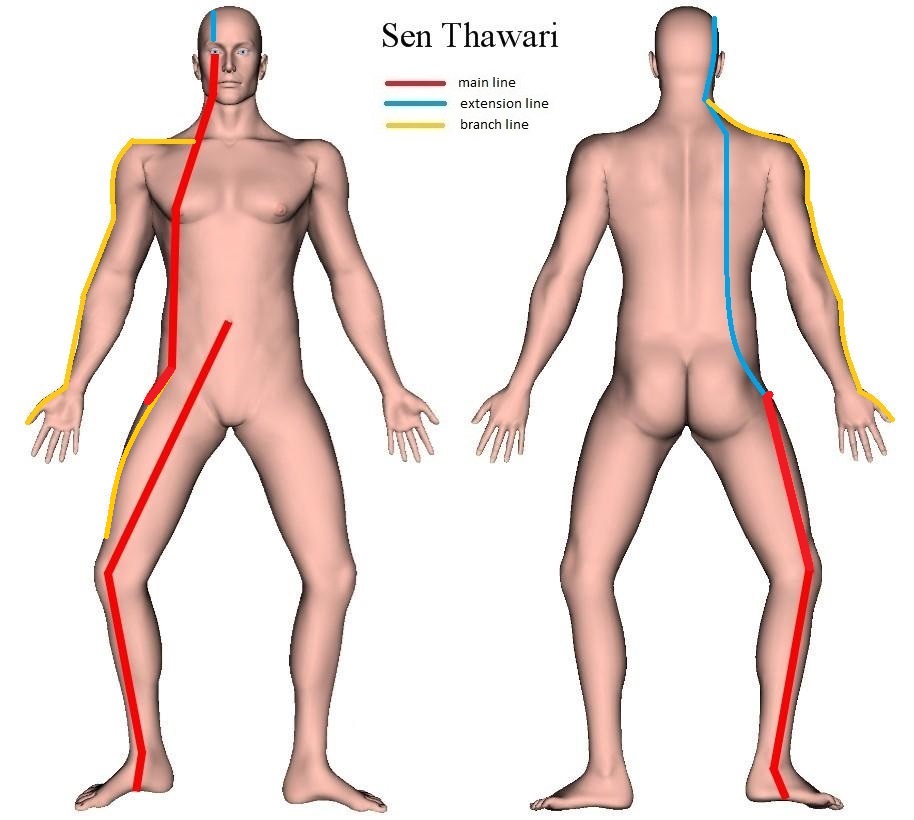 Sen Thawari runs on the right side of the body, and is the counterpart channel of Sen Sahatsarangsi.
Sen Thawari runs on the right side of the body, and is the counterpart channel of Sen Sahatsarangsi.
It’s associated with the Water Element, and related to the eyes, the abdominal region, and chest, with special indications for the intestines, liver, and gallbladder.
9. Sen Nanthakrawat
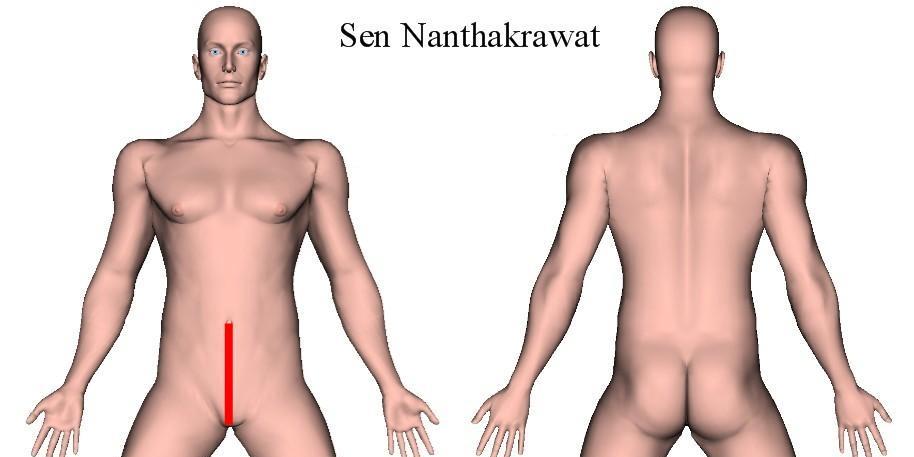 Sen Nanthakrawat is mostly related to the function of the genital and lower excretion organs, and notably manages elimination and detoxification. It’s associated with the Wind Element.
Sen Nanthakrawat is mostly related to the function of the genital and lower excretion organs, and notably manages elimination and detoxification. It’s associated with the Wind Element.
A particularity of Sen Nanthakrawat is that it comprises of two distinct Energy Lines, which we explain in the detailed discussion of Sen Nanthakrawat.
10. Sen Kitchanna
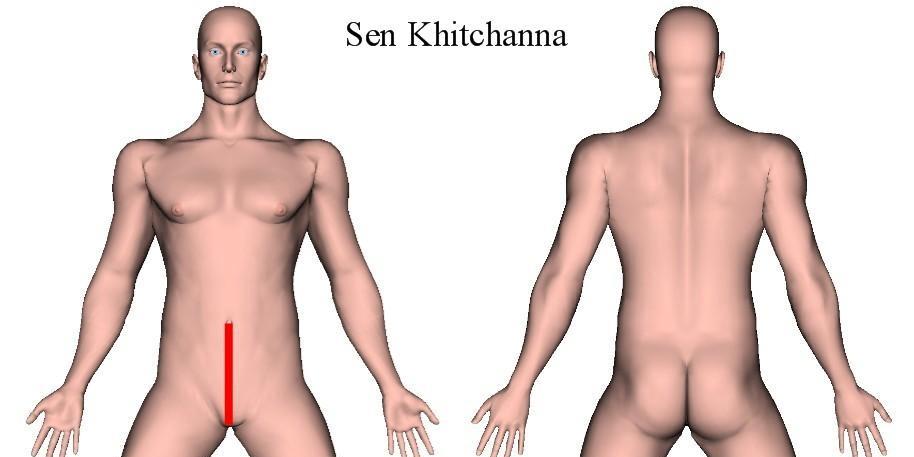 Like Sen Nanthakrawat, Sen Kitchanna is related to the healthy function of the genital and lower excretion organs, but notably manages procreative i.e. reproductive functions and sexual energy. It’s associated with the Wind Element.
Like Sen Nanthakrawat, Sen Kitchanna is related to the healthy function of the genital and lower excretion organs, but notably manages procreative i.e. reproductive functions and sexual energy. It’s associated with the Wind Element.
Although Sen Nanthakrawat and Sen Kitchanna have overlapping functions, each of these Sen Lines have another trajectory, also addressing other organs and different functions. Just follow the links mentioned above to know more about the details.







